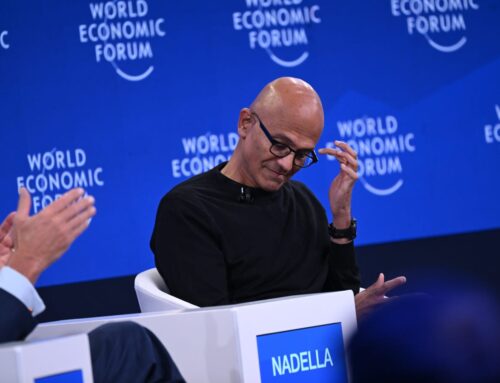Stocks rally after electronics, smartphones get tariff exemption
April 14, 2025
Stocks rallied for a second consecutive trading day after electronics including smartphones and computers were exempted from the Trump administration’s punishing tariffs on imports from goods made in China, giving some breathing room to stocks including Apple and Nvidia.
The S&P 500 jumped 42 points, or 0.8%, to 5,406 on Monday, while the Dow Jones Industrial Average rose 312 points, or 0.8%. The tech-heavy Nasdaq composite index rose 0.6%.
Among the notable gainers in early Monday trading were technology stocks including Apple, with the tech giant facing potentially massive price increases to its mainstay products like the iPhone, most of which are manufactured in China. Still, it’s unclear how long the reprieve will last, given that President Trump on Sunday denied that he exempted any products from his trade war and plans to study new tariffs on electronics components such as semiconductors.
“Even if President Trump does reach differing trade deals with some countries in the meantime, the lack of a consistent, clear path for trade policy has added to the overall level of uncertainty for markets, with no clear end to that in sight,” John Canavan, lead U.S. analyst with Oxford Economics, said in a research note. “So long as the situation lingers, demand for risk assets is likely to suffer, and volatility will remain significantly elevated as a result.”
Among the tech stocks that gained on Monday was Apple, with its shares rising $4.37, or 2.2%, to $202.52. Other outperforming sectors on Monday included drug and biotech companies, banks and insurers, according to financial data firm FactSet.
The tech exemptions come after China and the U.S. traded tariff increases over several days. China said on Friday it would raise tariffs on U.S. goods from 84% to 125%, while Mr. Trump’s universal tariffs on China now total 145%.
At the same time, Mr. Trump paused tariffs on most other countries for 90 days after global stock markets plunged earlier this month, and the bond market had a hostile reaction to the tariffs.
Economists are warning that the friction between the world’s two largest economies could cause widespread damage and a possible global recession, even after after the 90-day pause on some tariffs.
“If the rebound is going to have legs in the near term, investors will probably need to see continued signs of flexibility from the White House on tariffs,” noted Chris Larkin, managing director of trading and investing at E*TRADE from Morgan Stanley.
Larkin added, “Uncertainty is still high, and day-to-day volatility could remain elevated, especially if soft data stokes recession concerns.”
Search
RECENT PRESS RELEASES
Related Post




